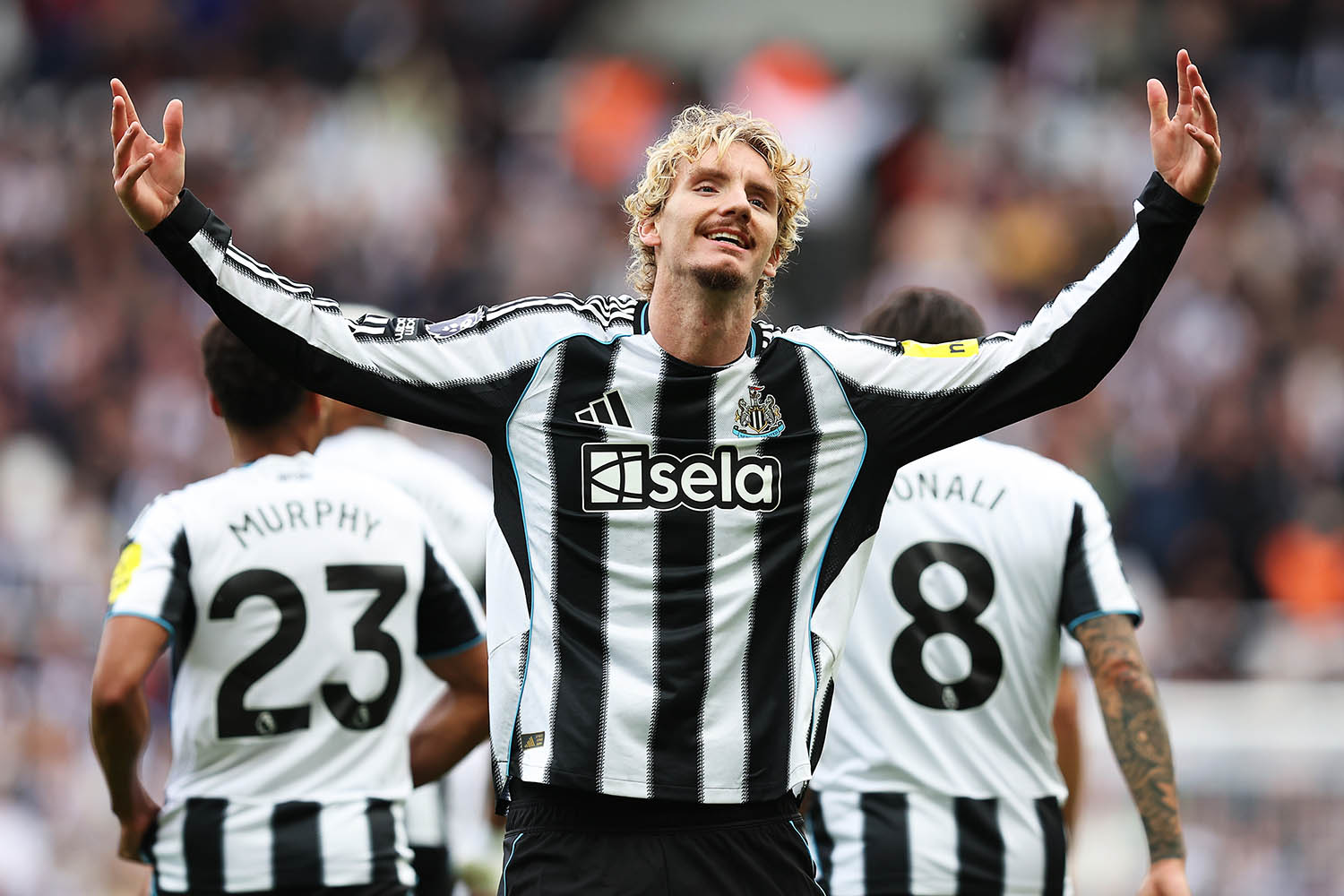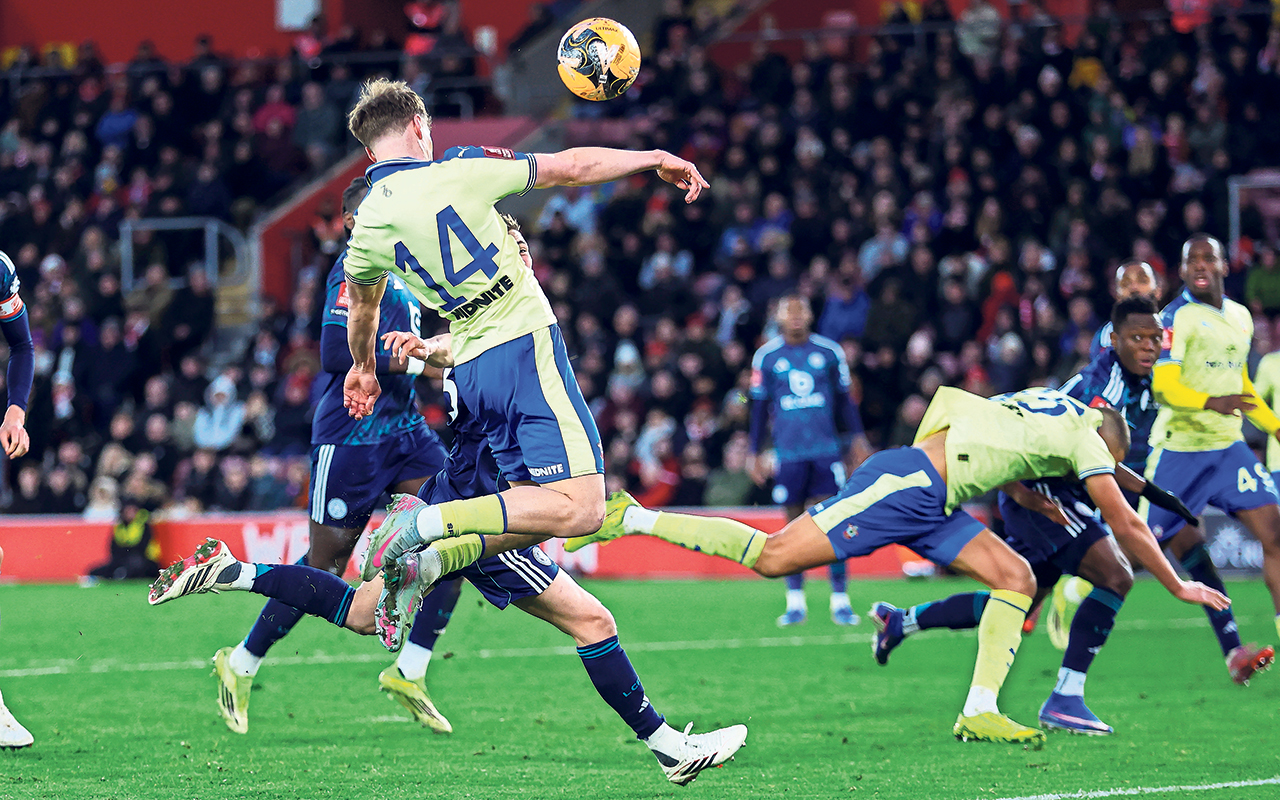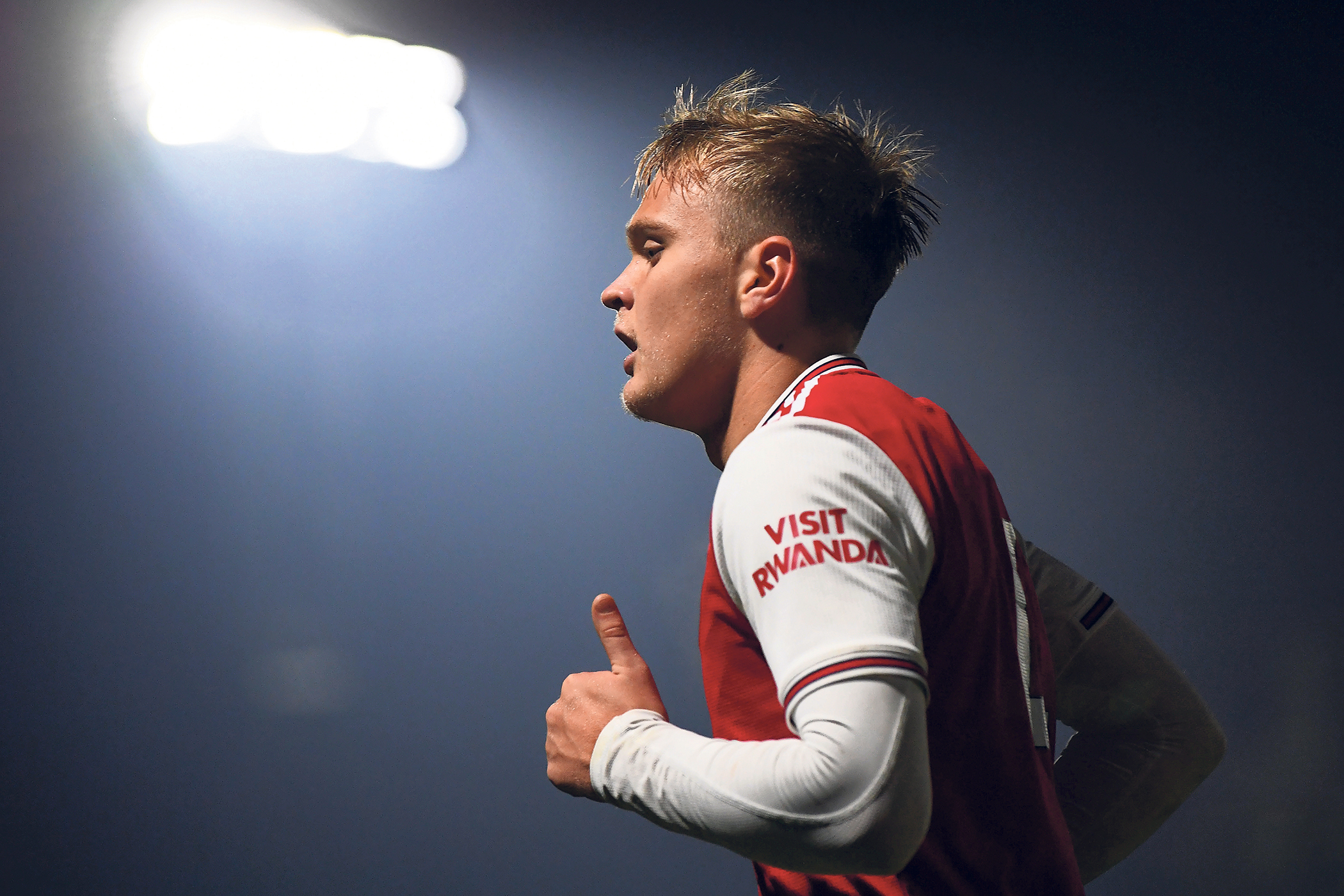All of it is designed to make you forget. The flashing yellow chyrons, the arbitrarily capitalised headlines, the people screaming at each other on the radio or on your social media feed or in a brightly-lit studio festooned with framed shirts placed perfectly for YouTube: it is all inorganic, deliberate, a knowing and cynical exploitation of genuine and sincere emotion.
It is done, largely, to elicit a reaction. Engagement, rather than enjoyment, is the basic unit of the digital ecosystem: not just likes and follows and subscribes but any reaction at all, positive or negative, the more exaggerated the better. Does this make you angry? Is this take so absurd and so ill-informed that it makes you furious? Perfect. Have another.
But it serves, too, to conceal a truth that every fan knows but cannot quite remember, to drown it in a sea of noise. It is the quiet part, the dirty little secret that lies beneath not only football’s bloated economy but its cultural hegemony: that none of it lasts. That the joy always dissipates and, more importantly, that the pain subsides.
This has been a bilious summer in Newcastle, the club and the city consumed by rage and resentment over the perceived betrayal of Alexander Isak. Groups of fans spent days on the streets outside the club’s training ground, filming the Swede arriving to train – by himself, away from the rest of Eddie Howe’s squad, as though his wanderlust might be contagious. Some wanted to persuade him to stay. Others, to put it mildly, did not.
Their fury is not difficult to understand. That Isak was so keen to join Liverpool felt, to many, like a grievous personal insult. In a globalised, dislocated world, a person’s team is increasingly frequently a central plank of their identity. In Newcastle – in many of the great, post-industrial cities of the north –the club serve as an avatar of and an ambassador for the place itself. Rejecting it cuts deep.
That Isak seemed to do so, again and again, only made it sting more: his determination to escape, refusing repeated entreaties from the club, even spurning an olive branch offered by Newcastle’s leadership, took on the tincture of a type of poison. When Liverpool, the team that had spirited him away, arrived on Tyneside last month, St James’ Park was splenetic.
That will remain, of course. Isak will hardly be welcomed back when he next returns to Newcastle, whether that is this season or next. Liverpool should not expect a warm round of applause from the crowd for a few years, either. The next time Howe bumps into Richard Hughes and Michael Edwards – old friends of his, and the two Liverpool executives who handled the deal – it will probably be kind of awkward.
And yet broken hearts do tend to heal. It is hard to remember, when there is an entire hot take industrial complex trying to make you forget, but just as there is always another game after a defeat, so there are always more players. It is in the nature of fans to move on, to follow the shirt and the badge, rather than the individual. We are always ready, despite ourselves, to fall in love again.
There was no mention of Isak at all at St James’ Park yesterday. There were no songs raking over old wounds, or merchandise questioning his moral compass. For the first time in what must have been a very long time, Howe faced the media and did not hear Isak’s name even once. Instead, he was peppered with questions about Nick Woltemade, the one chosen to replace he-who-must-not-be-named.
Newsletters
Choose the newsletters you want to receive
View more
For information about how The Observer protects your data, read our Privacy Policy
This is a club, and a city, ready to move on. There was a particularly loud cheer when Woltemade’s name rang out from the public address system at St James’ Park before the visit of Wolves. There were appreciative murmurs for the 23-year-old German’s every touch, calls of encouragement when a flick or a pass or a switch of feet did not quite work out.
And there was a colossal roar when the club’s record signing peeled off the back of Yerson Mosquera, to head home a tantalising cross from Jacob Murphy, the Leazes End rising to its feet at the only goal of a physical, breathless sort of a game. Contained within it were excitement and hope, of course, but also relief: relief that all that had gone before was over, relief that something new might begin.
And there are for Newcastle plenty of reasons to relish that prospect. Howe has strengthened his squad assiduously this summer. They have the strength in depth to compete not just in the Premier League but the Champions League, too. They have, in Woltemade, a player that Howe is confident can win the hearts and minds not just of his team-mates but of the fans, too. “You saw his qualities,” Howe said. “His technical ability, his intelligence. That goal will settle him down. It will relax him.”
They have the visit of Barcelona on Thursday to look forward to, a game that Howe described as “magical”, the sort of prospect that can “dissolve any negativity”, as he put it. This is a team who have plenty to look forward to; there is no benefit in looking back. They are a club who are now ready to forget all they have been through, happy – despite themselves – to start to love again.
Photo credit: Matt McNulty/Getty Images



